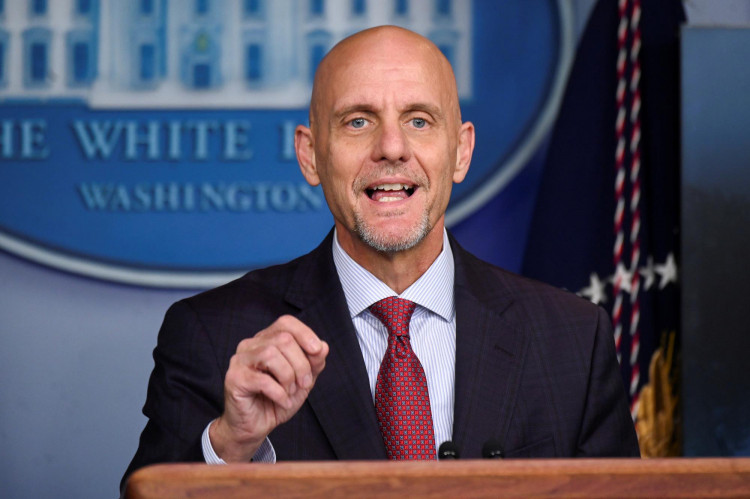U.S. health officials were shocked by statements made by the head of the U.S. Food and Drug Administration that a potential drug to combat COVID-19 might be granted emergency authority use even before completing a full set of clinical tests as early as previously proposed, reports said.
In a Financial Times interview, Food and Drug Administration Commissioner Stephen Hahn said the administration would only make an arbitration of the vaccine maker should it decide to apply for approval. If the vaccine developer applies for authorization before the completion of the final phase of testing, Hahn said the agency "may find that appropriate" otherwise it would decide if it found the application "inappropriate."
The process of granting emergency use approval depends on science, medicine and accurate results, Hahn said. It will not just be a "political decision" and insisted that the Donald Trump administration was not pressuring him to decide as speculation swirls about the need to come up with a vaccine as the U.S. election nears.
Trump has been very vocal against the FDA - even claiming without any proof that there were influential figures working against the acceleration of the vaccine's approval to damage his political reputation. Even some of his most loyal supporters smirk at the idea.
A few days ago the agency approved convalescent plasma to treat coronavirus patients in emergency hospital care despite doubts among scientists that preliminary data from tests wasn't strong enough to merit extensive use of the vaccine.
Health experts are concerned that before Election Day Nov. 3, Trump might pressure the FDA to approve a COVID-19 vaccine before it had fully passed all the required tests just to gain support for the "October Surprise." However, a group of doctors said Trump can't just do whatever he pleases.
Meanwhile, AstraZeneca PLC, in tandem with Oxford University, Moderna, partnering with the U.S. National Institutes of Health and Pfizer Inc. and BioNTech SE are making progress in their late-stage clinical tests involving tens of thousands of subjects.
The number of confirmed COVID-19 infections was nearing 6 million in the U.S., figures from Johns Hopkins University showed.






